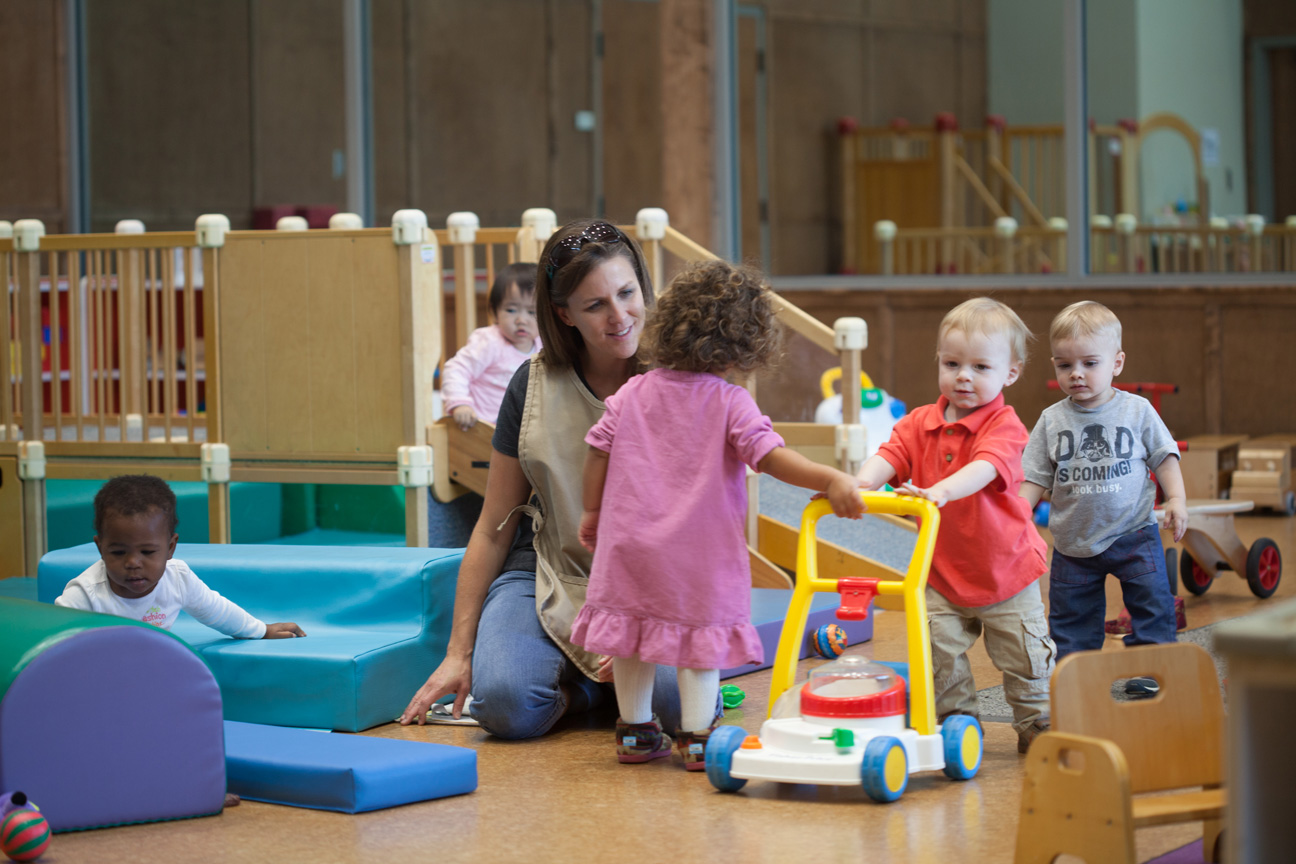
FAYETTEVILLE, Ark. – Each year, the National Association for the Education of Young Children sponsors and celebrates the Week of the Young Child with the goal of focusing the public's attention on the needs of young children and their families. Human development and family sciences students in the Dale Bumpers College of Agricultural, Food and Life Sciences at the U of A have research plans for the fall with the same goals.
The theme of this year's Week of the Young Child, April 12-18, is celebrating our youngest learners. The School of Human Environmental Science's graduate students Mary Bassett and Julia Mathias, and undergraduate Betsy Nelson, have plans to study how different factors can affect learning for young children. Their research will take place at the Jean Tyson Child Development Study Center. The study center ranks among the top 10 percent of all childcare facilities in the nation, providing quality care and education to more than 100 children ranging in age from two months to five years. The center is also used by more than 110 U of A faculty, staff and students for academics and research.
Bassett's research will focus on communicating with babies through sign language. Bassett said the goal of her study is to show pre-verbal communication.
"My focus is child development and I am doing my thesis on the intervention of baby sign language with newborns, infants and toddlers to show pre-verbal communication," said Bassett.
Bassett also said teaching a baby how to communicate with sign language does not inhibit them from learning to communicate verbally.
"There is a lot of research on language development and IQ that support baby sign language and how it does not inhibit them from talking," said Bassett. "It actually enhances development."
Mathias plans to research sensory processing in young children from birth to 5-years-old.
"It is focusing on the sensory processing and the temperament of the child, and goodness of fit between the children and the parents all wrapped together," said Mathias.
She will gain quantitative data through questionnaires given to parents of children enrolled at the Jean Tyson Child Development Study Center.
Nelson will evaluate whether or not continuity of care is empirically correct.
"The idea of having a child stay with a care taker longer and keeping those bonds seems intuitive but there is really no research about it right now," said Nelson.
She will be using a smaller group of about 60 child participants in addition to interviewing teachers from the Jean Tyson Child Development Study Center to gain qualitative data.
All research will be done at the study center at the U of A. Students have the opportunity to observe young children in a state of the art facility in several different observation areas while at the Jean Tyson Child Development Study Center, which opened in 2012 and is accredited by the National Association for the Education of Young Children.
As a student conducting research, Mathias said the center is a great place to be able to hold observations.
"There are several good childcare centers around but there is not really a good study center for children," said Mathias. "The children don't get as overwhelmed by all the people like they would at another child care center because most of them don't have observation rooms."
About the Dale Bumpers College of Agricultural, Food and Life Sciences: Bumpers College provides life-changing opportunities to position and prepare graduates who will be leaders in the businesses associated with foods, family, the environment, agriculture, sustainability and human quality of life; and who will be first-choice candidates of employers looking for leaders, innovators, policy makers and entrepreneurs. The college is named for Dale Bumpers, former Arkansas governor and longtime U.S. senator who made the state prominent in national and international agriculture.
About the University of Arkansas: The University of Arkansas provides an internationally competitive education for undergraduate and graduate students in more than 200 academic programs. The university contributes new knowledge, economic development, basic and applied research, and creative activity while also providing service to academic and professional disciplines. The Carnegie Foundation classifies the University of Arkansas among only 2 percent of universities in America that have the highest level of research activity. U.S. News & World Report ranks the University of Arkansas among its top American public research universities. Founded in 1871, the University of Arkansas comprises 10 colleges and schools and maintains a low student-to-faculty ratio that promotes personal attention and close mentoring.
Topics
Contacts
Brittney Fund, communications intern
Dale Bumpers College of Agricultural, Food and Life Sciences
559-978-1262,